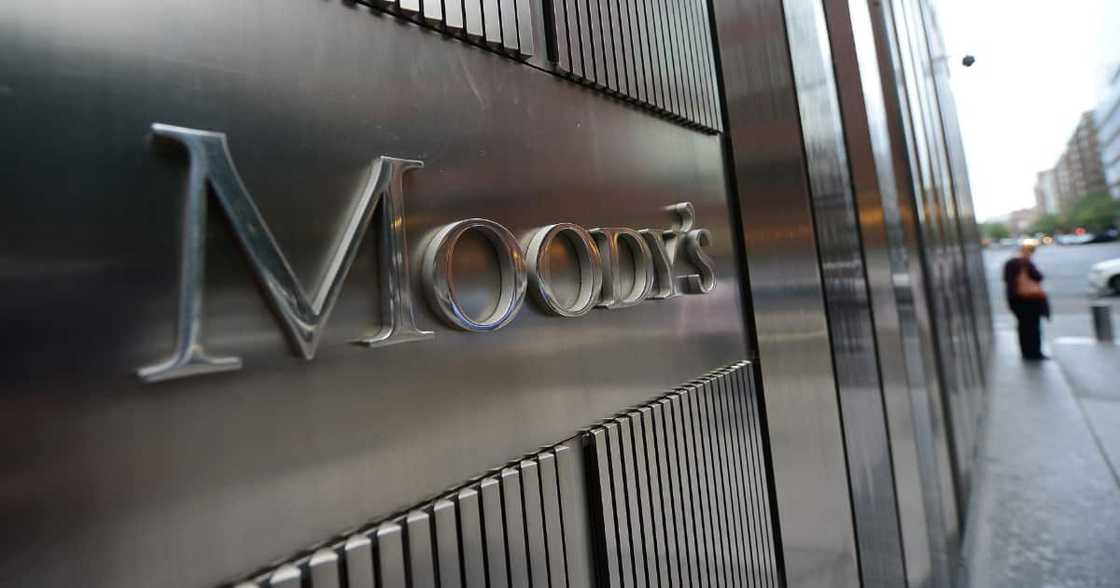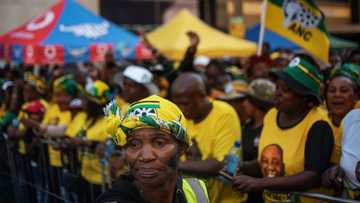Business News: SA Metros Downgraded to Junk Status By Moody's
- Following the violent protests that took place in KwaZulu-Natal and Gauteng, Moody's has dropped South Africa's rating
- The rating agency downgraded South Africa's metropolitan municipalities after downgrading Tshwane Metropolitan Municipality in June
- Another ratings agency Fitch believes that the violent protests will have a temporary effect on South Africa's rating
PAY ATTENTION: Click “See First” under the “Following” tab to see Briefly.co.za News on your News Feed!
Credit ratings agency Moody's downgraded South African urban municipalities to junk status on Friday, citing uncertainties about the quality of their revenue collection and mounting financial challenges.
The metropolitan municipalities affected by the downgrade include the City of Cape Town, the Nelson Mandela Metropolitan Municipality and the City of Johannesburg, according to a report by Fin24.

Source: Getty Images
Local municipality the City of uMhlathuze was also downgraded as well as Ekurhuleni Water Care.
PAY ATTENTION: Never miss breaking news – join Briefly News' Telegram channel

Read also
Bheki Cele says alcohol sales may be banned on 1 November: "That’s all he’s concerned about"
This comes after the Tshwane Metropolitan Municipality was downgraded by Moody's in June, citing liquidity concerns.
The decision to downgrade the municipalities' ratings by one notch reflects mounting financial challenges and revenue collection shortages, which Moody's expects to continue as a result of weak growth.
These South African metros, according to Moody's, are expected to drain their financial buffers, raising the risk of future shocks degrading their ability to absorb them.
Moody's added that several of these municipalities recorded revenue collection decreases of up to 10% in 2020, which the firm believes will be widespread and long-lasting.
"As a result, Moody's expects a material deterioration of gross operating balances and cash balances in the 2021 financial year and the 2022 financial year," the report said.
Fitch believes the impact of unrest on South Africa’s sovereign rating will be limited
Credit ratings agency Fitch says looting and the violent protests that took place in the past week will have no direct influence on the country's economic development prospects, according to the Daily Maverick.
Fitch also believes that the unrest will also not heavily impact the debt score or plunge South Africa further into Junk Status.
“Fitch Ratings believes that the direct economic impact of riots in South Africa following the arrest of former president Jacob Zuma will be limited for the sovereign’s creditworthiness,” said the rating’s firm.
However, Fitch states that the violence raises concerns about social and political stability, and it may have an impact on fiscal policy.
Fitch added that attempts to stabilise the level of government debt/GDP may be hampered by wage negotiations in the public sector.
Violent protests began in KwaZulu-Natal last week that led to widespread violence, looting and destruction of property. The protests then spread to Gauteng and other provinces. A large number of malls, businesses and warehouses were completely looted or destroyed as a result.
Fact Check: No, SANDF won't confiscate groceries if you don't have a receipt
Briefly News recently reported that a Facebook post that has been shared multiple times has made the claim that the South African National Defence Force will confiscate groceries of individuals who cannot provide proof of purchase at roadblocks.
The post went on to further say that it was the only way for SANDF to distinguish looters from people who actually purchased their groceries.
According to a report by TimesLIVE, Police minister Bheki Cele stated that the police will be going house-to-house and asking communities for proof of purchase for items such as flat-screen TVs and refrigerators as part of an initiative to retrieve stolen goods.
Enjoyed reading our story? Download BRIEFLY's news app on Google Play now and stay up-to-date with major South African news!
Source: Briefly News



